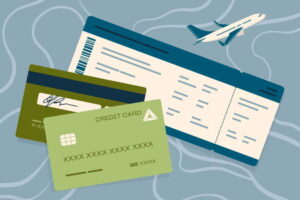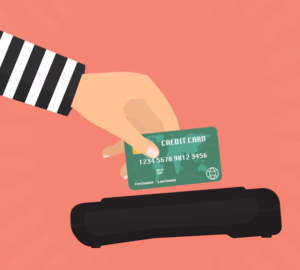What happens if you miss a credit card payment in the U.S.? The hidden consequences
Life gets busy, and sometimes, bills slip through the cracks. But missing a credit card payment in the U.S. isn’t just a minor inconvenience—it can lead to costly fees, interest hikes, and lasting damage to your credit score.
If you’ve ever wondered what happens when you miss a due date, this article breaks down the financial, legal, and credit-related consequences, helping you understand the risks and how to fix a late payment before it spirals out of control.
Immediate financial consequences of a late payment

Late fees and interest rate increases
The first and most immediate consequence of a missed payment is a late fee. Credit card issuers typically charge a fee ranging from $25 to $40, depending on how often you’ve missed payments in the past. Even one late payment can trigger an increased penalty APR, which may exceed 29.99%, making future balances significantly more expensive to pay off.
Interest also continues to accumulate on any outstanding balance. If your card has a grace period, missing a payment may eliminate it, meaning new purchases start accruing interest immediately rather than after the billing cycle ends.
Loss of promotional or introductory offers
Many credit cards offer promotional 0% APR periods on purchases or balance transfers. However, a single late payment can void these benefits. If you were relying on an interest-free period to pay off a balance, the sudden application of a high APR can make repayment much harder.
Additionally, missing a payment can disqualify you from future promotional offers from the same issuer, limiting your ability to take advantage of balance transfers or special financing deals.
Over-the-limit fees and reduced credit limits
If your missed payment results in additional interest and fees that push your balance above your credit limit, you may face an over-the-limit penalty. This can also lead to a reduction in your available credit, making future purchases or emergency expenses more challenging to manage.
Some issuers also reduce credit limits after a late payment, further straining your available credit and potentially increasing your credit utilization ratio, which affects your credit score.
How late payments impact your credit score
When do late payments show up on your credit report?
Credit card issuers typically report late payments to the credit bureaus once they are 30 days overdue. If you miss a payment by just a few days but pay before the 30-day mark, you may still face fees and penalties, but your credit score will remain unaffected.
However, once a late payment is reported, it can stay on your credit report for up to seven years. The more recent the late payment, the greater its impact on your credit score, especially if you previously had a strong credit history.
The severity of credit score damage
The effect of a late payment on your credit score depends on multiple factors, including your overall credit history and how late the payment was. Generally, a single 30-day late payment can drop a good credit score by 50 to 100 points. If the payment remains unpaid and reaches 60 or 90 days overdue, the damage becomes even more severe.
Additionally, late payments can signal financial distress to lenders, making it harder to get approved for new credit cards, loans, or even rental agreements. Mortgage lenders, in particular, scrutinize late payments, which can jeopardize home loan approvals or result in higher interest rates.
How long does it take to recover?
Credit score recovery after a late payment depends on several factors, including the rest of your credit history. If you resume on-time payments and maintain good credit habits, your score may start improving within a few months. However, the late payment itself remains on your credit report for up to seven years.
To speed up recovery, focus on reducing overall credit utilization, keeping old credit accounts open, and avoiding further late payments. Some lenders may also agree to remove a late payment from your report if you have a strong payment history and request a goodwill adjustment.
Steps to take after a missed credit card payment
Paying the past-due amount as soon as possible
If you’ve missed a payment, the best thing to do is pay it immediately. Even if you can’t cover the full balance, making at least the minimum payment can prevent additional fees and penalties.
Paying before the 30-day mark can also keep the missed payment from being reported to the credit bureaus. If you’re unable to pay the full amount, contact your credit card issuer to discuss potential solutions, such as a temporary hardship program or a reduced payment plan.
Negotiating fees and interest charges
Many credit card issuers are willing to waive late fees or penalty interest rates for customers who have a history of on-time payments. If you’ve been a reliable cardholder, call customer service and politely request a fee waiver.
Some issuers may also reinstate promotional APRs if the late payment was an isolated incident. The key is to act quickly and explain any extenuating circumstances, such as a bank error or financial hardship.
Setting up payment reminders and autopay
To prevent future missed payments, consider setting up automatic payments for at least the minimum due amount. Most banks and credit card issuers offer free text or email reminders that notify you when a payment is coming up.
If you prefer manual payments, scheduling a recurring calendar reminder a few days before your due date can help ensure you never forget another payment. Furthermore, linking your due date to your payday can make it easier to budget and prioritize your credit card bill.
The importance of financial discipline
Developing good financial habits is the best way to avoid late payments. Budgeting for credit card bills, monitoring due dates, and prioritizing payments can help you maintain a strong credit profile.
Additionally, keeping an emergency fund can provide a financial cushion in case unexpected expenses arise, ensuring you never have to miss a payment due to a temporary cash shortage.
Missing a credit card payment in the U.S. can lead to late fees, increased interest rates, credit score damage, and even long-term financial consequences. However, the severity of the impact depends on how quickly you act to resolve the issue.
By paying off past-due balances as soon as possible, negotiating fees, and setting up reminders to avoid future mistakes, you can minimize the damage and maintain a healthy credit profile. Taking proactive steps now can save you from costly financial pitfalls down the road.
Graduated and master's student in History. Fanatic of books and series. Editor since 2023.




